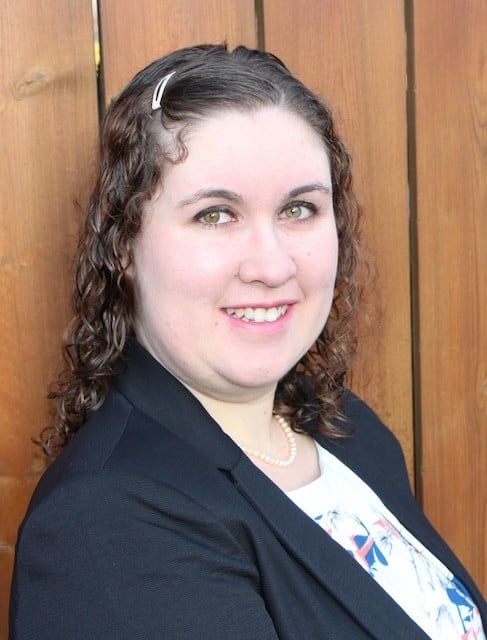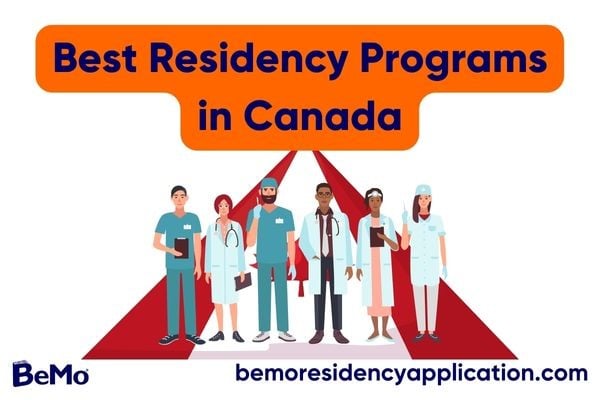If you are wondering where to apply for your residency, why not take a look at some of the best residency programs in Canada? Canada has 17 medical schools located across the nation, from coast to coast, many of which are trailblazers in the field of research and offer unique opportunities to complete your residency in urban, suburban or northern, rural settings. To prepare for your residency application, you can consult the CaRMS timeline and application system for residency matching.
In this article, we will explore some of the top specialties in Canada.
>>Want us to help you get accepted? Schedule a free initial consultation here <<
List of the Best Residency Programs in Canada (All Specialties Considered)
1) University of Toronto
The University of Toronto offers one of the most comprehensive residency programs in Canada, known for its strong emphasis on research, diverse clinical training opportunities, and access to leading medical facilities. The General Surgery Residency Program, for instance, provides extensive hands-on experience and opportunities for advanced research through its Surgical Scientist Training Program. This program is highly regarded for preparing residents for both academic and clinical careers in surgery of several varieties.
2) McGill University
McGill University is renowned for its rigorous residency programs, particularly in fields such as General Surgery and Cardiothoracic Surgery. The programs offer a blend of comprehensive clinical training and significant research opportunities. Residents benefit from the university’s affiliation with several leading hospitals, providing a diverse range of clinical experiences and exposure to complex cases.
3) University of Alberta
The University of Alberta’s residency programs, such as those in General Psychiatry and Dermatology, are recognized for their extensive clinical training across multiple facilities and strong research components. The programs emphasize both clinical excellence and academic development, offering residents a wide range of electives and opportunities to engage in meaningful research projects.
4) University of British Columbia
UBC offers highly competitive residency programs, known for their strong clinical training, research opportunities, and focus on resident wellness. The Family Medicine and General Psychiatry Residency Program (among 73 other sub-specializations) combines extensive clinical placements with academic seminars and research activities, preparing residents for leadership roles in psychiatry. UBC’s emphasis on diversity and inclusion further enhances the training environment.
5) Dalhousie University
Dalhousie University’s Family Medicine residency program is known for its balanced approach to training in both general and specialized pediatrics. The program offers extensive inpatient and outpatient care experiences, with a strong emphasis on research and scholarly activities. Residents are encouraged to present their research at national and international conferences, making it an ideal program for those interested in both clinical practice and academic medicine.
Best Residency Programs in Canada: By Specialty
Based on overall reputation, student success/happiness and research opportunities – and using the Canadian Resident Matching Service (CaRMS), FREIDA Residency Program Database and the Royal College of Physicians and Surgeons of Canada as sources -- here are the top ten residency specialties in Canada, and their subsequent ‘top’ program(s):
What Makes a Residency Program the Best?
It goes without saying that labelling something as the “best” can be subjective. In the case of the University of Toronto, you’ll notice we mention it a lot. This is because it is undeniably one of the top institutions. It ranks 4th globally for surgery, 6th for medical school, and 18th overall for universities.
But, with that in mind, a school’s rankings don’t determine the value you’ll take away from your residency program or your future success! For instance, you might find U of T doesn’t suit your needs, or that you’d prefer to complete your residency outside of a metropolitan city.
There are several factors that make certain residency programs stand above the competition, but they might not be what every candidate is looking for. These factors can include suitability to the student’s goals, a comprehensive curriculum, variety of facilities, focus on research, notable faculty members, affiliate hospitals, and so on. For the lists above, we considered student satisfaction, overall reputation, and clinical and research opportunities for each program and school.
Best Residency Programs in Canada: A Closer Look
The family medicine residency program covers the full scope of family medicine, including community-based care, inpatient care, emergency medicine, chronic care, and more. It allows the students to follow the same patients across their family medicine clinics, hospitals, and long-term care facilities (gaining exposure and experience in rural and urban residency settings is exceptionally valuable, and many programs in Canada offer this). Students will be learning continuously to build values centered on family medicine. As an aspiring family medicine resident, you will need to work on your family medicine residency personal statement. The interview phase in the application process can be challenging, which is why it is ideal to familiarize yourself with some family medicine residency interview questions and answers.
Want to know the easiest and hardest residency programs to match with? Check out this video:
Tips on How to Match with the Best Residency Programs in Canada
When we asked one of our trusted consultants how applicants can improve their chances of matching, she shared, that impressive or stand out extracurriculars really made a difference in her application:
“I did a lot of volunteer medical school mock interviewing for my graduate and undergraduate schools; I enjoyed this, because I like working with students. I also continued to participate in my hobbies including photography, which came up a lot during interviews! My specialty (psychiatry) specifically focuses on a holistic view of applicants and creating cohesive residency classes. I showed preparedness and interest in psychiatry by engaging in research and taking advantage of unique psychiatry rotations offered at my medical school. These both gave me plenty of stories to talk about how I validated the field and showcase how I see my career progressing in psychiatry." - Monica Taneja, MD, Harvard South Shore, Psychiatry
Along with Dr. Taneja’s advice, familiarizing yourself with the CaRMS application, preparing your documents, and practicing for your interview will help you improve your chances of getting matched with a program of your choice. You can use our residency match calculator to gauge your chances of matching.
The CaRMS application has 7 components, plus the interview:
- Residency CV
- Transcripts
- Medical Student Performance Report (MSPR)
- Medical licensing exam scores
- Reference letters
- Residency personal statement
- Optional: residency letter of intent
Check out how to improve each application component below. Note that not all documents may be required for all programs.
In your CV, start with your academic background from latest to oldest. List your employment history, volunteer work, extracurriculars, research, honors and awards, publications, and elective experiences. The program director should get a clear ideal of your career progression. Consider residency CV editing help to get an early start on your application.
Residency Interview
A residency interview is part of your CaRMS application, and it is up to the program to decide which candidates to invite. The interview can be either in person or online.
Timely CaRMS interview prep can go a long way to ensuring you ace your interview. First, determine the interview format. Then, find out whatever you can about the program. Next, reflect on what you have to offer. Practice answering the most common interview questions, such as the “tell me about yourself" question, the why should we choose you?” residency interview question, the what are you looking for most in a residency program interview question, and the how will you contribute to our program residency interview question. When answering these and other questions, highlight key qualities and desirable personality traits like motivation, communication skills, confidence, dedication, and so on. Our consultant, Dr. Taneja, recommends applicants do the following:
“I found that the most important piece to residency interviews is having a natural conversation. There is a lot more in common between you and the people you are talking to then when I had medical school interviews. I made sure to know my 2-3 key talking points, but focused on just having a good conversation with my interviewer. This is really important when you are talking to a resident, as the most important thing to them is making sure you would mesh well into the program.” - Monica Taneja, MD, Harvard South Shore, Psychiatry
You can also prepare for your interview by participating in mock interviews. These will simulate the actual interview environment you’ll be experiencing and give you the confidence and practice you need for the actual interview. Understanding what residency program directors look for can also help you prepare for your interview.
FAQs
1. What does a medical residency typically entail?
A medical residency involves 2-6 years of supervised training in a hospital or clinic, preparing medical graduates to practice independently.
2. What is CaRMS?
The Canadian Resident Matching Service (CaRMS) is an independent organization that matches medical graduates with residency programs in Canada.
3. How does CaRMS work?
CaRMS matches candidates with residency programs based on their preferences and qualifications, with two iterations to fill available spots.
4. How many programs should I apply to? Is there a maximum limit?
Apply to 30-35 programs; there is no maximum limit in Canada.
5. What are some medical schools that offer a family medicine residency program in Canada?
Schools include Memorial University, Dalhousie University, University of Ottawa, McGill University, University of Saskatchewan, UBC, and McMaster University.
6. How can I prepare for my CaRMS residency interview?
Prepare by researching the program, practicing common interview questions, reflecting on your qualifications, and doing mock interviews.
7. Which medical schools in Canada offer a five-year neuropathology residency?
Many programs offer global health rotations, rural medicine placements, and specialized research projects, providing diverse experiences beyond traditional training.
8. Is there a way to find out what my chances of getting matched are?
You can use our residency match calculator to get an idea of what your match chances are.

